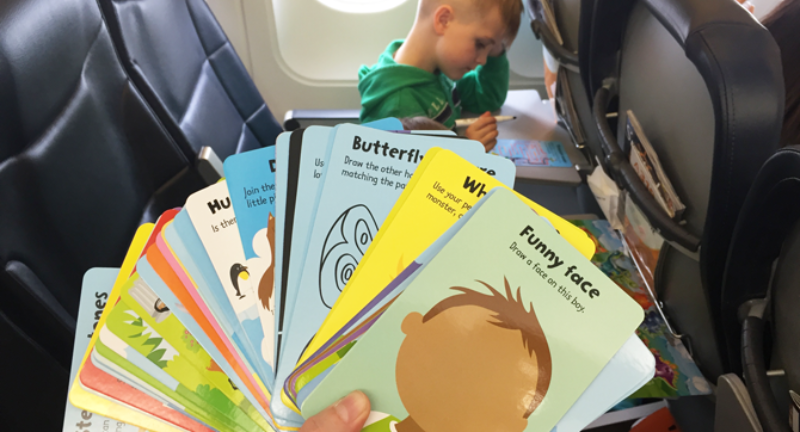
10 Study Tips for Children and Teens with ADHD
Whether your children are returning to in-person learning, e-learning, homeschooling, or a hybrid combination, there’s one thing that remains constant: homework. And study tips for ADHD can make all the difference for children and teens with ADHD.
In this article, we’ll cover 10 study tips for ADHD to make your child’s study time and homework time more productive — and more peaceful.
1. Create a “Study Only” Space
Distractions are one of the biggest road blocks when it comes to homework. Toys, TV, and even siblings who want to play can hinder study time. Children with ADHD are more likely to be distracted by their surroundings. The key is to create a “study only” space to help limit distractions. Trying to study in the family room while a sibling is playing or watching TV can be a big temptation.
Instead, create a comfortable place where your child can work with few distractions. Use this as a quiet place to work far away from noise and movement. Your child can clear his or her mind and focus on the tasks at hand.
Study spaces can include a quiet living room, the dining room table, or even the den (as long as the TV is off!).
Don’t do homework in the bedroom. The bedroom is a place for sleep and relaxation — not school work and stress.
Study Tip
2. Make a Study/Homework Schedule
Most children thrive with consistency. And for children with ADHD, it’s even more essential to have a consistent routine. Adding a dedicated study/homework time to your child’s after school schedule helps to start his or her focus. Set a time each day for your child to study, whether he’s e-learning, in-person learning, or homeschooling. This is one of the best study tips for ADHD!
3. Add Breaks to Your Schedule
ADHD can make it hard to focus, especially if your child is studying a subject that’s not-so-interesting to him. Breaks are a must to help maintain focus and avoid burnout. Add a break time and encourage your child to eat a snack or even go for a quick walk with you. This quick little break allows the mind reset! Bonus: if you choose to move around for the break, it will help burn off extra energy.
4. Fuel Up
We just covered the importance of adding a break to a long study session. Now we’re going to discuss the importance of starting the study session already fueled up and ready to go. If your child is hungry, he’s less likely to have a good study session. Healthy, nutrient-dense snacks are the best brain fuel.
Choose healthy foods that won’t crash his or her blood sugar. Certified Health Coach Pam Valdes suggests, “A combo of protein and complex carb (fiber-rich) snacks fuel energy and help stabilize blood sugar levels. For this reason, fruit and nut combinations work really well, such as apple & peanut butter, grapes & pecans, orange & almonds, pear & walnuts.”
5. Organize the Homework Station
Study tip #5 is all about organization. When you create a homework station for your child, organization is key to his or her success. Organize school supplies with:
- Colored folders or binders
- Colored notebooks or dividers
- Colorful labels
- Pencil case or pencil/pen caddy
However you decide to organize the station, it’s important that everything has a proper place. When everything — whether that’s a pencil or a notebook — has a place, your child spends more time studying and less time looking for lost pencils or books. This includes having a spot to hang up your child’s backpack.
6. Encourage and Support Your Child
A positive, supportive environment is a crucial ingredient to your child’s study area. Encourage your child to always try his or her best, and this is one study tip that can go far. When your child feels encouraged and supported, he’s more likely to see study time as a positive thing. If your child struggles, it’s okay to offer age appropriate help. Encourage your child look at challenges in a positive light to keep him or her motivated and develop a growth mindset.
Here are eight phrases that you can use to inspire and encourage your child:
- I can see you’re really trying!
- Keep on trying!
- You almost got it!
- I can see you tried hard.
- I appreciate your hard work on this project.
- How do you feel about that?
- I’m glad you enjoy learning!
- I’ll bet you knew you could do it!
If your child is struggling, don’t hesitate to stay in contact with your child’s teacher. When you know what’s going on in the classroom, it’s easy to spot red flags when they arise.
7. Understand Your Child’s Learning Style
Did you know that there are several different learning styles? Auditory, visual, or even kinesthetic — they are all valid and common ways of learning. Change studying habits to fit his or her learning style. For example, if your child is a kinesthetic learner, you can encourage the use of models or physical touch. You might also encourage your child to write down the facts he is trying to memorize. Use a finger to physically touch the items he is counting. According to Houghton College, movement can also help increase focus and attention while studying. This includes:
- Chewing gum
- Tapping a pencil
- Pacing (perhaps while you orally quiz your child on their test materials)
On the other hand, a visual learner may do better reading his or her own notes from class rather than an oral review.
The bottom line: Every child learns differently. Studying in a way that works for him or her can help improve both understanding and retention.
8. Know When It’s Time to End a Study Session
Children with ADHD can become easily frustrated or struggle to manage emotions. Encourage your child to keep going, but don’t push your child too much. If he or she has hit his or her limit, it’s okay to end a study session.
Praise your child after he or she finishes his or her homework or completes a study session, but remember to praise progress and effort.
9. Teach Your Child New Study Skills
Take each study session to the next level by teaching your child new study skills. A few examples of study skills include: mnemonic devices, effective reading, practicing concentration techniques, and efficient note-taking.
If your child is e-learning, there may be an adjustment as he or she learns to take notes via online classes. Be sure your child has plenty of notebooks, highlighters, and other tools for good note-taking.
10. Need More Than Just Study Tips for ADHD? Get Help If Your Child Needs It
Are you searching for actionable strategies to help your child with ADHD study better? In addition to practicing these study tips and strategies, your child may benefit from professional care. Here at Next Step 4 ADHD, we take multidisciplinary and holistic approach to your child’s ADHD treatment. Dr. Kristi Briscoe is a board-certified pediatrician specializing in effective medication management, parent coaching, and proven strategies to motivate and encourage children with ADHD.
We also offer coaching and therapy. You can see our multidisciplinary team of compassionate and expert providers here.
To make an appointment, call us at 502-907-5908. You can also request an appointment here.
Related Posts
A Better Way to Treat ADHD
Generally speaking, ADHD is expensive. A recent article published by Additude...
Traveling with a Pre-School Age Hyperactive Child Abroad
This summer my wife, Kristi Briscoe, M.D., and I brought our two boys along with...



